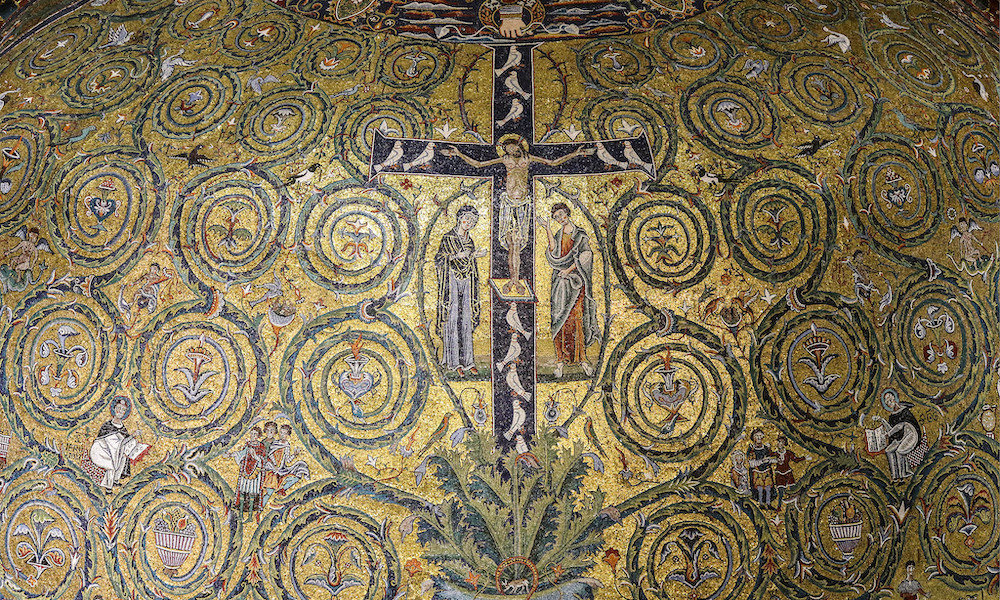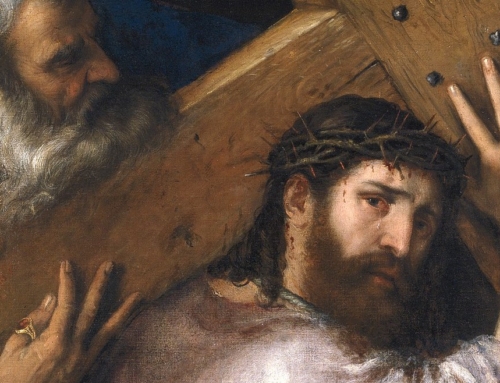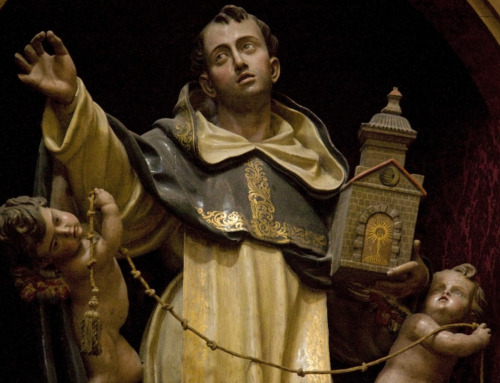We’re nearly halfway through the Easter season, but dark clouds are looming over us. I’m not referring to clouds in the sky, but to what often occurs around this time of year: endings. Semesters are soon coming to a close, and students will return home. Summer is approaching, and people will move on to other things. Even here, at the Dominican House of Studies, brothers will be ordained and sent out to the harvest. All of these realities prompt an unpleasant experience: saying goodbye.
Goodbyes are difficult. We get to know people, and we find ourselves strongly rooted in relationships. When we firmly imbed ourselves in these bonds, leaving them feels like ripping a plant out of the soil. The roots that were so interwoven with the ground are now exposed. The prophet Isaiah describes this experience: “Scarcely are they planted, scarcely sown, scarcely their stem rooted in the earth, when he breathes upon them and they wither, and the stormwind carries them away like straw” (Isa 40:24).
Given how painful it is to say goodbye, should we even bother planting ourselves in the first place? Why concern ourselves with these people if it will hurt so much when it’s time to leave?
A wise priest once told me, “My prayer for you is that, wherever you go, you would dare to love so much that leaving feels like dying.” With this attitude, goodbyes may not become less painful, but they nevertheless become significant opportunities to recognize God’s grace. Goodbyes afford us the occasion to acknowledge how we have received and shared God’s love with the people he has placed in our lives.
To be sure, the kind of love this priest describes demands a lot from us. Loving in this way requires death to self, and it even makes our departures feel like martyrdom. Christ himself gives us an example of this self-sacrificial love. At the Last Supper, Jesus calls his disciples “friends” (John 15:15). Jesus loved these men, and he laid down his life for them. Yet, this self-sacrificial love didn’t prevent him from saying goodbye. The love he had for them even motivated his farewell: “But I tell you the truth, it is better for you that I go” (John 16:7). Christ is the perfect martyr who laid down his life for his friends. Thus, he also perfectly embodies the martyrdom of saying goodbye.
By following Christ’s example, we become more like him even when we have to say goodbye to those we love. He teaches us to die to ourselves when loving others to the end. When we say goodbye in this grace-filled way, we can replace the grief in our hearts with the Psalmist’s words: “He has put into my heart a marvelous love for the faithful ones who dwell in his land” (Ps 16:3).
This kind of love is not without fruit. Just as the martyrs’ blood is the seed of the Church, so this death to self yields fruit for the harvest when we say goodbye. It enriches the charity that is within us and that we have received from others. This growth stems from being rooted in Christ. “So, as you received Christ Jesus the Lord, walk in him, rooted in him and built upon him and established in the faith as you were taught, abounding in thanksgiving” (Col 2:6–7). Though we may be uprooted from familiar soil, we will continue to flourish if we remain grounded in the rich soil of Christ’s love. Do not be afraid, therefore, to plant yourself firmly in these loving bonds, for then you will be among the blessed who are “like a tree planted near streams of water, that yields its fruit in season / Its leaves never wither; whatever he does prospers” (Ps 1:3).
✠
Photo by Fr. Lawrence Lew, O.P. (used with permission)







